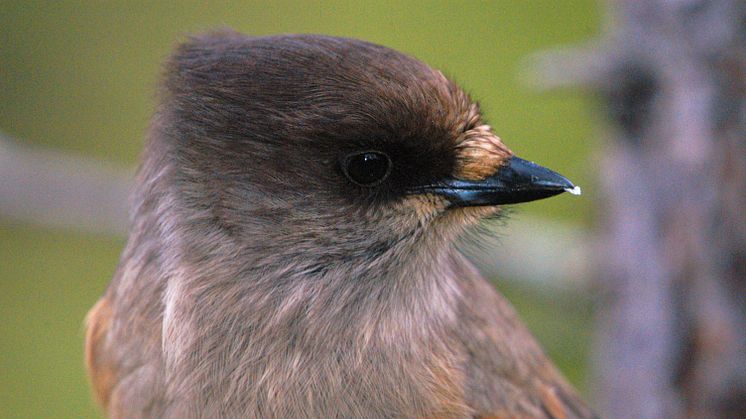Pressmeddelande -
Siberian jays use complex communication to mob predators
When mobbing predators, Siberian jays use over a dozen different calls to communicate the level of danger and predator category to other members of their own group. A Swedish study from Uppsala University, published in the Proceedings of the Royal Society Biological Sciences, shows birds have evolved call systems that are as sophisticated as those of primates and meerkats.
Most prey immediately escape upon detecting a predator. However, when encountering resting predators, many prey approach and mob predators despite the associated risk. While mobbing predators, prey utter mobbing calls, which have been suggested to vary depending on risk or predator category. The new study from the Department of Ecology and Evolution, Uppsala University, shows that Siberian jays adjust their mobbing calls depending on both these factors simultaneously. According to the study, both factors matter since they determine the risk posed by the resting predator.
"The chatter of mobbing jays is rather complex. The birds use over a dozen different calls, some of which are specific for owls and other for hawks, the two main predator categories of jays," says researcher Michael Griesser.
Moreover, jays adjust their calling depending on group composition. Family groups utter much more calls than groups that only consist of unrelated individuals. The only other animal species with a comparably rich vocabulary when mobbing predators are meerkats, a small mammal that lives in large family groups.
Together with earlier published findings, this study demonstrates that Siberian jays can possess an extraordinary large "vocabulary" of over 25 different vocalisations, some of which are specific for a situation while others are uttered in various contexts.
"My study supports the idea that the need to survive encounters with predators might have played an important role for the evolution of complex animal communication," says Michael Griesser.
Not only our ancestors but also other family group living animals outwit their predators with the help of their cognitive abilities. Lowering the risk of relative of being killed benefits the propagation of the own genes through kin selection. In contrast, animals that live in anonymous groups rather rely on the selfish notion that other group members could become the target in the next predator attack, and therefore have no such communication systems.
Download and listen to the mobbing calls for different predator categories:
call 1 - owl
call 2 - owl
call 3 - owl
call 4 - hawk
call 5 - hawk
call 6 - hawk
call 7 - unspecific predator
call 8 - unspecific predator
Read more in the Proceedings of the Royal Society Biological Sciences.
Michael Griesser is currently working at the Swedish University of Agricultural Sciences, but conducted the study at Uppsala University.
For more information, please contact Michael Griesser, +46-(0)73-705 30 97 or +46-(0)70-694 32 86, e-mail: michael.griesser@ekol.slu.se

